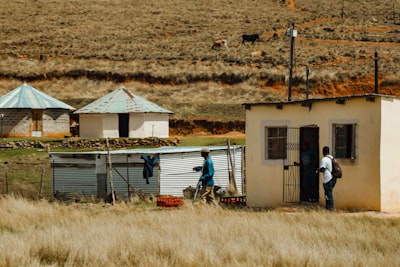Voices Under Threat: Unemployment, Free Speech, and Social Change in Lesotho
Lesotho, a small landlocked country in southern Africa, is making international headlines — not for its breathtaking landscapes, but for a growing crisis involving youth unemployment, economic stagnation, and the silencing of activists. The recent arrest of Tšolo Thakeli, a vocal advocate demanding jobs for Lesotho’s young people, highlights urgent questions about democracy, accountability, and the role of free speech in driving meaningful change.
Lesotho’s Unemployment Rate: A Growing Concern
With overall unemployment at 16% and youth unemployment soaring to 24% (World Bank data), Lesotho faces an economic emergency shared by many African nations. Youth joblessness fuels frustration, migration, and even instability. It also sparks activism: activists like Thakeli harness social media to demand real answers and policy solutions from their leaders.
Free Speech and Democracy: Why Speaking Out Matters
Thakeli’s story — arrested for questioning the prime minister’s job creation promises — exposes the delicate balance between state power and civil liberties. Why is free speech crucial in countries facing economic hardship?
- Government Accountability: Open criticism and questioning push leaders to uphold promises and curb corruption.
- Informed Citizenry: Free discourse enables citizens to make educated decisions about leaders and policies.
- Social Cohesion: Allowing peaceful dissent reduces the risk of violent unrest.
Blocking critical voices often signals deeper problems: eroded democratic norms, weakened institutions, and lack of transparency in policymaking.
Africa’s Youth Unemployment Challenge: A Regional Perspective
Lesotho’s employment crisis is echoed across the continent:
- In South Africa, youth unemployment hovers around 45%.
- Many African countries struggle with creating enough quality jobs to match their growing populations.
- The pandemic and global economic downturn have worsened these trends.
What’s Being Done?
Popular online questions include:
- What strategies work to reduce youth unemployment in Africa?
- How can governments encourage entrepreneurship and new industries?
- What are successful models for job creation?
Some promising solutions:
- Vocational and STEM Education: Adapting curricula to market needs.
- Support for Startups: Access to credit and business mentorship.
- Public-Private Partnerships: Collaboration to create sustainable jobs.
The Digital Age: Social Media as a Force for Activism
Platforms like Facebook and X (Twitter) have become battlegrounds. In Lesotho’s case, a single viral video by Thakeli inspired youth to speak out — but also triggered punitive action by authorities. This raises essential questions:
- Is online activism effective for policy change in Africa?
- How can governments respond constructively, not repressively, to digital dissent?
- What protections do activists need in the social media era?
Human Rights, Sedition Laws, and Regional Solidarity
Thakeli’s arrest, followed by protests and widespread regional concern, shows that basic freedoms are non-negotiable pillars of a healthy democracy. Southern African watchdogs and advocacy groups have sounded the alarm, emphasizing:
- The dangers of vague sedition laws for stifling dissent
- The need for regional cooperation to protect activists and uphold international human rights norms
Key Takeaways
- Unemployment and free speech are linked: Economic frustrations often spark activism, which should be met with dialogue, not criminal charges.
- Social media amplifies voices, but also risks: Governments should engage, not silence, online activism to foster accountability and innovation.
- Regional trends matter: Learning from successful job creation programs and strengthening human rights protections are essential across Africa.
FAQ: Lesotho’s Unemployment and Free Speech
Q: How high is youth unemployment in Lesotho?
A: The rate is about 24%, among the highest in the region.
Q: Is it legal to criticize the government in Lesotho?
A: The constitution provides for free speech, but recent events show these rights are under threat.
Q: What can be done to solve youth unemployment?
A: Solutions include reforming education, supporting entrepreneurship, attracting investment, and increasing government transparency.
Q: Where can I learn more about activism in Africa?
A: Groups like Action for Southern Africa and Amnesty International frequently report on these issues.
Lesotho’s struggle is part of a larger continental debate about jobs, justice, and democracy. For citizens, policymakers, and global readers, paying attention means supporting both economic opportunity and the basic freedoms that make progress possible.

Comments
No comments yet. Be the first to comment!